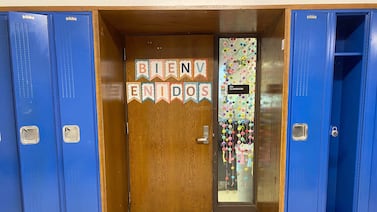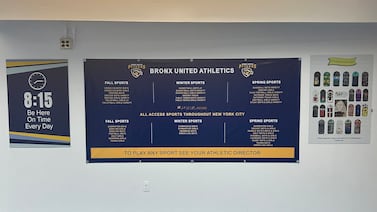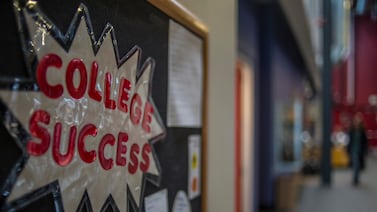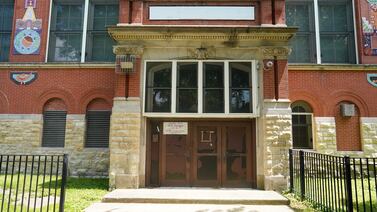Indiana’s 2023 legislative session is under way, and state legislators have introduced more than 100 new education bills and bills impacting schools and students. For the latest Indiana education news, sign up for Chalkbeat Indiana’s free newsletter here.
A proposal to bring more job training to Indiana high school students moved forward Wednesday over the objections of Democratic lawmakers who said the bill still had too many unanswered questions about its scope and funding.
The bill, which House Republicans have said will “reinvent high school” by allowing students to meet graduation requirements through career experience, gives students state-funded scholarship accounts to spend on workforce training outside their schools.
The voucher-like proposal saw a few tweaks Wednesday as author Rep. Chuck Goodrich, R-Noblesville, added a price range of $2,500 to $5,000 to the accounts, to be determined by the Department of Education and the Governor’s Workforce Cabinet.
New language also specifies that schools can host joint career fairs to meet the provisions of the bill, and requires all schools to offer a career awareness class for all students, regardless of whether they use the scholarship accounts, by July 2024.
The bill passed the House Education Committee by a vote of 8-4 and now moves to the House Ways and Means Committee, which will determine the cost of the program. If passed, accounts would be available for the 2023-24 school year, and the education department would be tasked with creating new diploma requirements by December 2024.
Though there was no testimony Wednesday, community organizations in past hearings have expressed support for more career development for students, along with reservations about the additional work the bill might create for schools.
Democrats on the education committee said the bill was moving forward with too many unanswered questions, including how the funding would be doled out between schools, students, career training providers, and any intermediaries between those entities.
They proposed a number of amendments to limit the scope of the bill — including one to make the proposal a pilot program in only a few schools around the state, and another to study the idea further in a summer committee — but most were shot down on party lines.
They also questioned whether the bill’s proposal to allow students to use funds from the 21st Century Scholarship Grant, which are currently earmarked for college tuition, for postsecondary career training would lead to fewer students from low-income families earning college degrees. Republicans on the committee denied this suggestion.
Rep. Ed DeLaney, an Indianapolis Democrat, added that the scope of the bill was enormous, and would affect private schools and state agencies while creating a parallel education system.
“They talk about not being ready for prime time; this bill isn’t ready for soap opera time,” DeLaney said in the committee hearing.
The committee also rejected an amendment to provide more funding to school counseling departments, which DeLaney argued would be burdened with implementing the program.
The committee did accept an amendment from Democratic Rep. Vernon Smith of Gary to offer schools funding for career fairs.
Aleksandra Appleton covers Indiana education policy and writes about K-12 schools across the state. Contact her at aappleton@chalkbeat.org.








